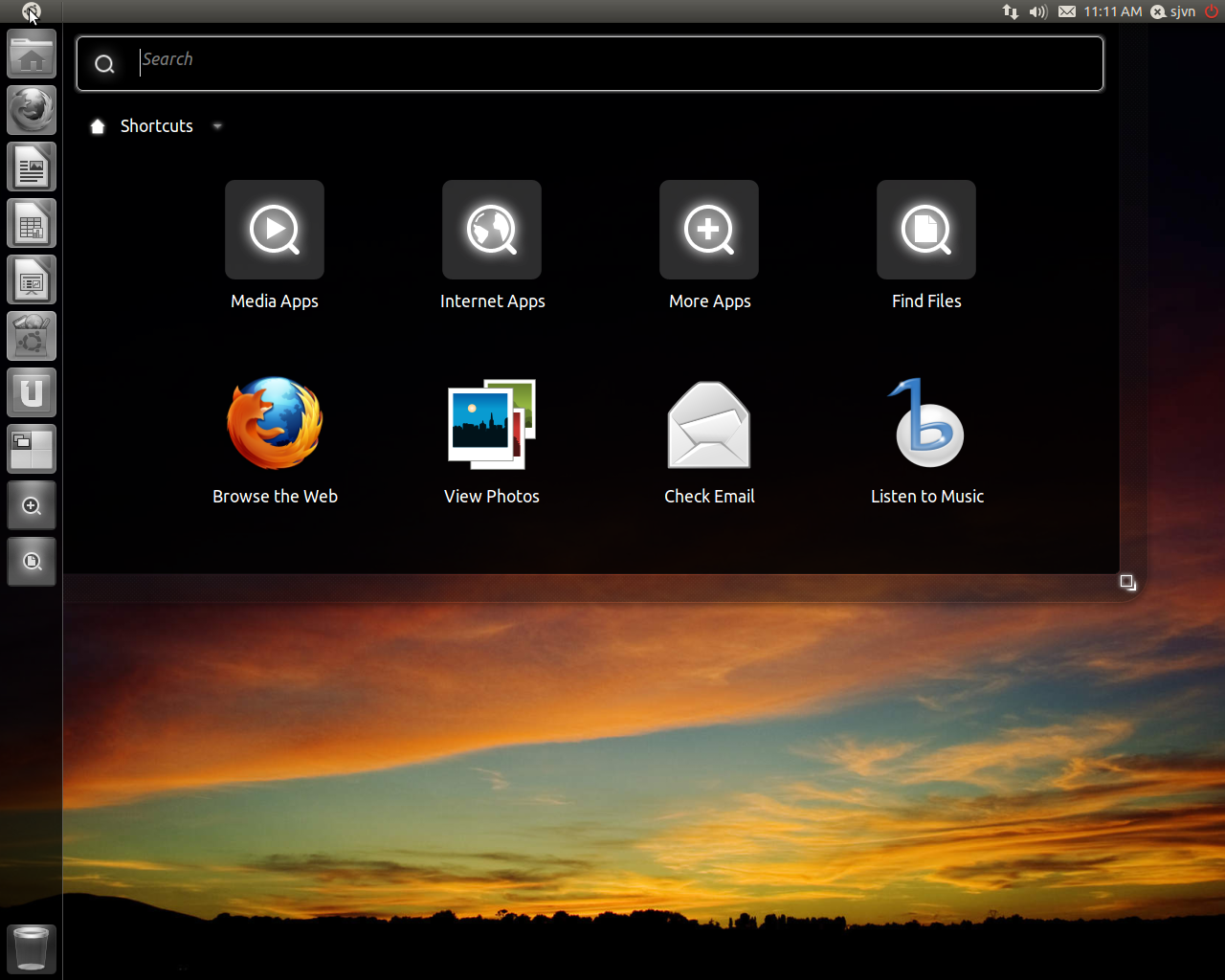What you need to know about the new Ubuntu


First, as before, you can download Ubuntu 11.04 from the Web to your PC. In the next few weeks, you'll also be able to run the Ubuntu 11.04 desktop from the cloud, but that's not available yet. You can, however, give Ubuntu 11.04 server a try from the cloud today though.
Finally, you can also try Ubuntu 11.04 within Windows using Wubi. With this approach, you treat Ubuntu just as if it were a Windows application and run it within Windows. While this isn't as fast as running Ubuntu as a native operating system or on a virtual machine, such as VirtualBox or VMware Player, it's the easiest way for Windows users to give Ubuntu a try.
Most users though will want to download Ubuntu 11.04 and then use the operating system's ISO image on a CD or a USB stick to either try it out or install it on their PC. If you use this way, you can install Ubuntu beside your existing operating system.
Last, but not least, if you're already running Ubuntu, you can simply update your older version. I was able to upgrade my Ubuntu 10.10 without any trouble.
The new Ubuntu will run on any PC from the last ten-years. I've got it running on several PCs and laptops here at my office and it does great on even my no-name 2006 PC with a 2.8 GHz Pentium IV, one GB of RAM, and a 60 GB hard drive.
Once you have it up and running, you're going to quickly notice that Ubuntu 11.04's Unity interface doesn't look a darn thing like any other desktop you've been using. That doesn't mean it's hard to use though. In fact, Unity is remarkably easy to use. I know for a fact some users are going to find it too easy to use. This is not an interface for people who like to get their hands dirty with the internal functions of their operating system.
As Jane Silber, CEO of Canonical, Ubuntu's parent company, said in a statement "This release breaks new ground for Ubuntu by offering users a PC experience that is stylish and efficient. With this release Ubuntu will recruit an entirely new wave of users to free software. Ubuntu 11.04 is a high watermark for what has been achieved with open-source technologies for the every day computer user." That's exactly right. Ubuntu 11.04 is not so much for Linux experts as it is for new users.
This has been coming for some time. In 2008, Mark Shuttleworth, founder of Ubuntu and the company behind it, Canonical, said he wanted the Linux desktop to go past the Mac desktop in ease of use. I'm not sure the Ubuntu team has done that with Unity, but they've come closer than I thought they would.
Page 2: [Using Ubuntu's Unity interface] »
Using Ubuntu's Unity interface
When you first see Unity, whether you've ever used Linux or not, I think you're going to be puzzled. It looks more like a smartphone or tablet interface than it does a PC desktop. Play with it, I think you'll find that it's very easy to pick up and that you find it surprisingly fun to use. And, when was the last time you thought about "fun" and a PC anytime recently?
I had also expected Unity to be slow. I was wrong. It's remarkably fast. Yes, it was even fast on that Pentium IV box albeit on it, Unity only worked in its 2D mode.
If you decide you can't stand the new interface, though, all you have to do is reboot and choose Ubuntu Classic from the bottom of the logon screen.
The Unity interface also brings a new way of doing things. For example, instead of hunting through folders and files for a particular file, Unity uses a universal search bar. You can, if you want, work your way through directories if you like, but the search mechanism is both fast and works well.
You'll also find that you use this new search not just for files, but for applications as well. Of course, for the applications you use the most, you can simply place them on Unity's left-hand application launch bar.
Behind the new interface, you'll find some new applications as well. Instead of OpenOffice, you'll find LibreOffice for office use, and for playing music and videos, Banshee is now the default player. From a user's viewpoint, I can't imagine anyone having any trouble with these applications.
LibreOffice, for example, is faster than OpenOffice but has the exact same command set and interface. In addition, it also does a better job with Microsoft Office 2007 and up document formats. That makes LibreOffice an excellent choice for working with people who are still using Microsoft Office products.
One application interface change that may take you some time to adjust to is that Unity uses a "global menu" for most pre-installed applications. With global menus, unless you're working with multiple applications at once on the display, the application with the focus will have its menu at the top of the screen. You'll only see separate application menus if they're needed.
Taken as a whole, I think you'll find, once you're past the Unity interface shift, that you're going to find the new Ubuntu to be a delightful desktop operating system. Enjoy!
Related Stories:
Ubuntu Linux 11.04's Target Audience: Casual Windows Users